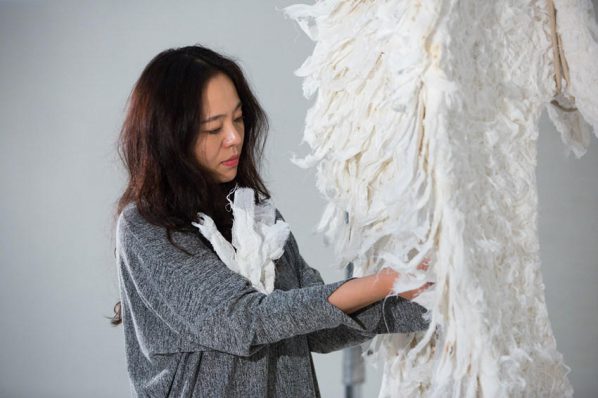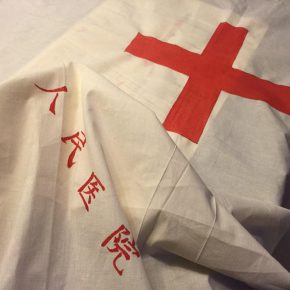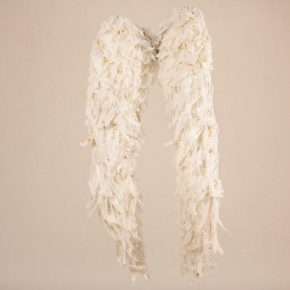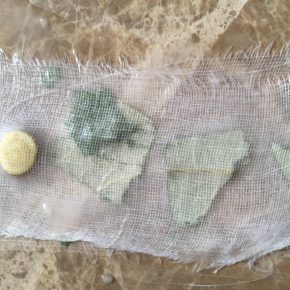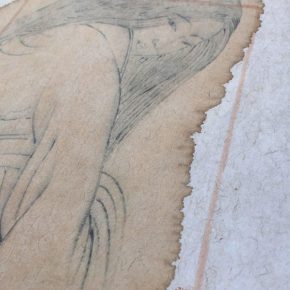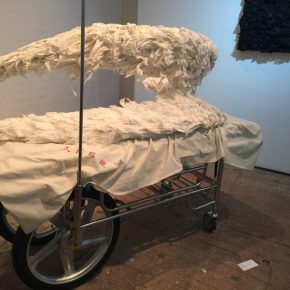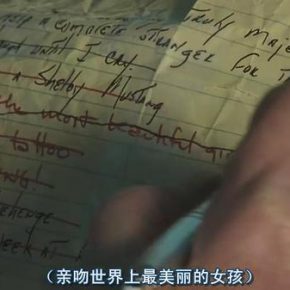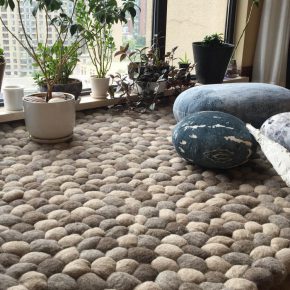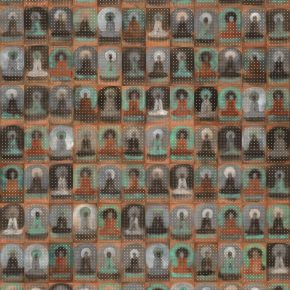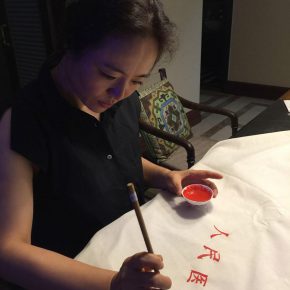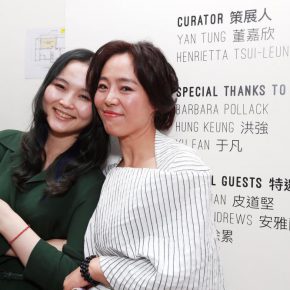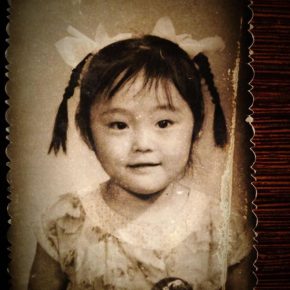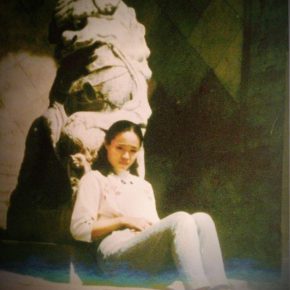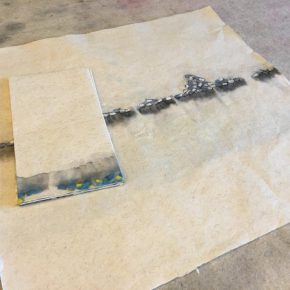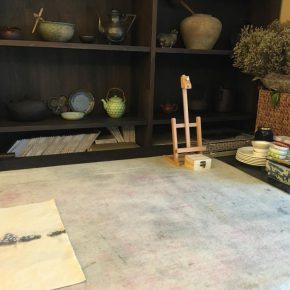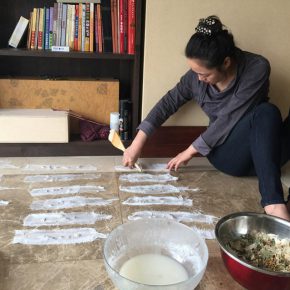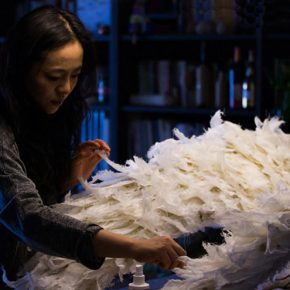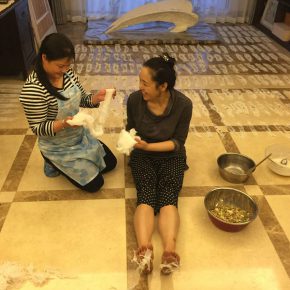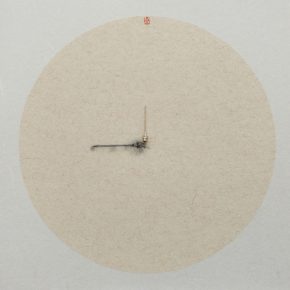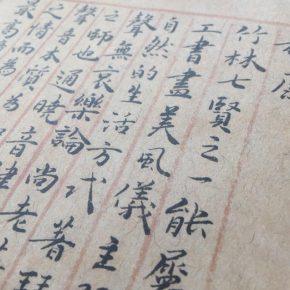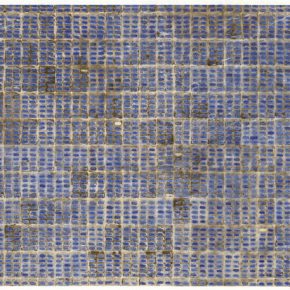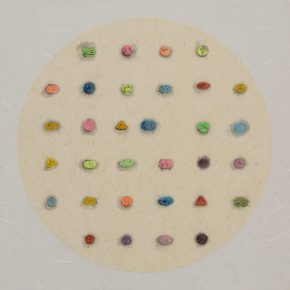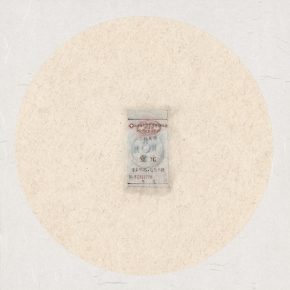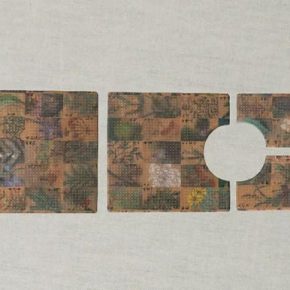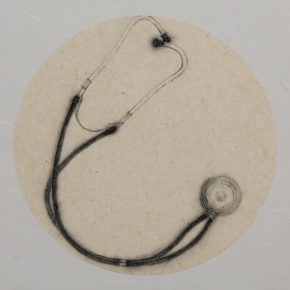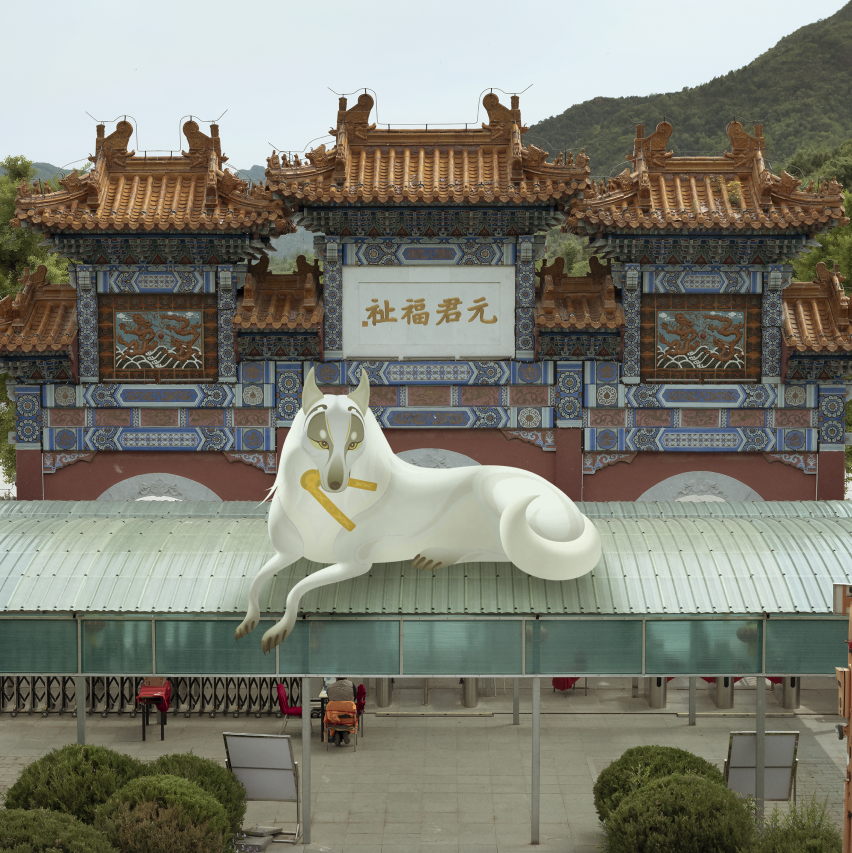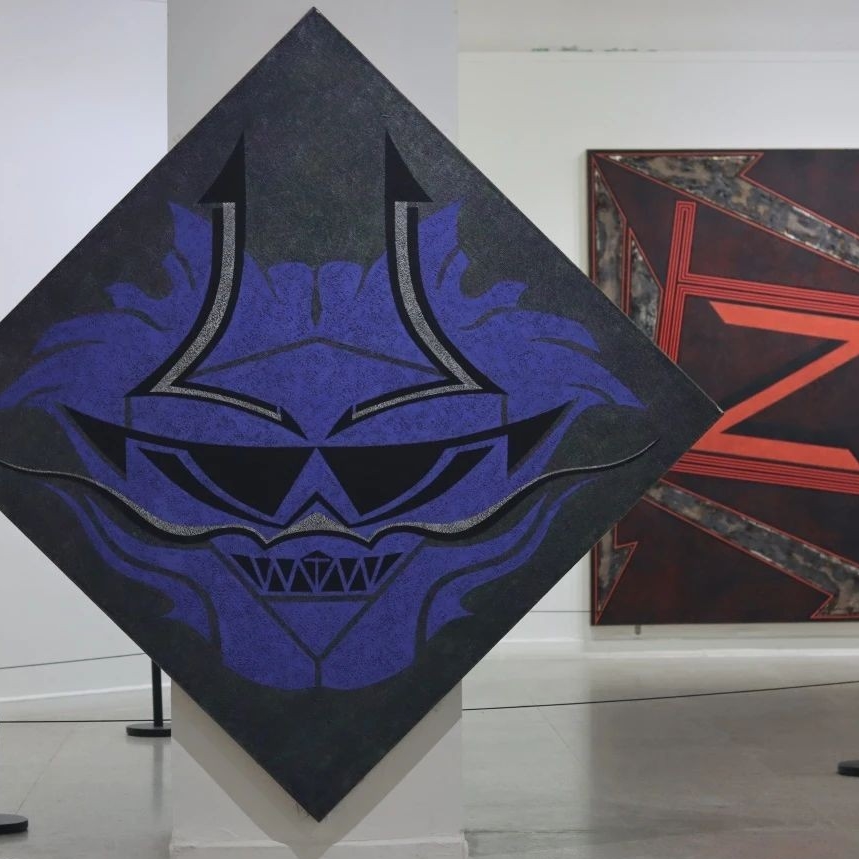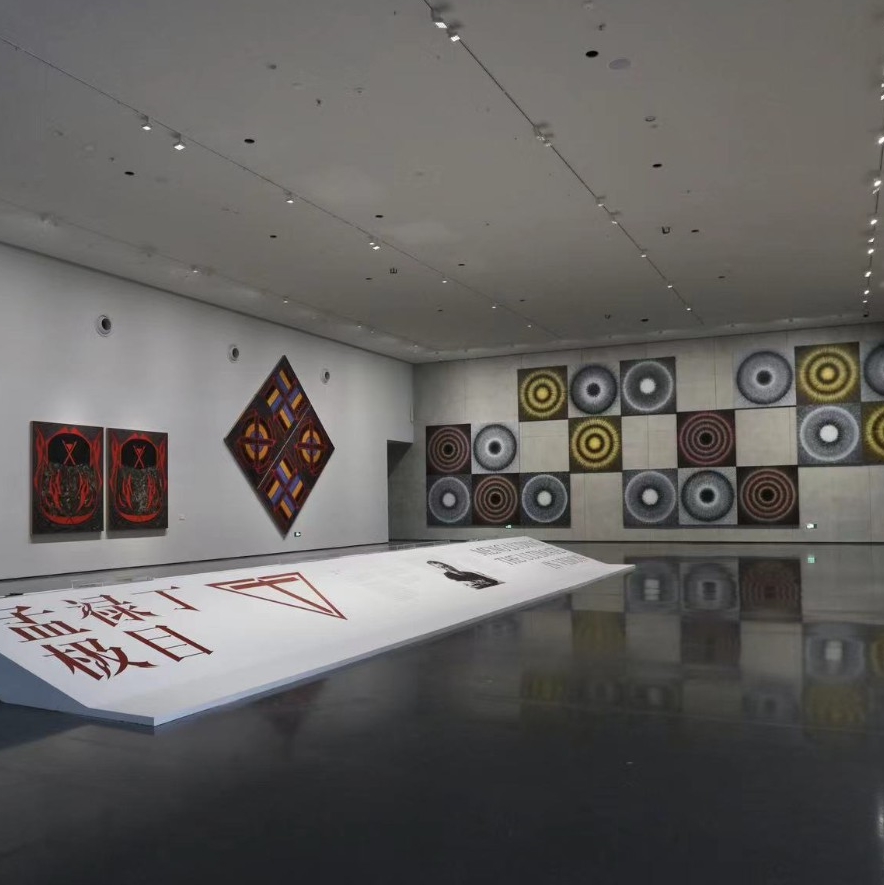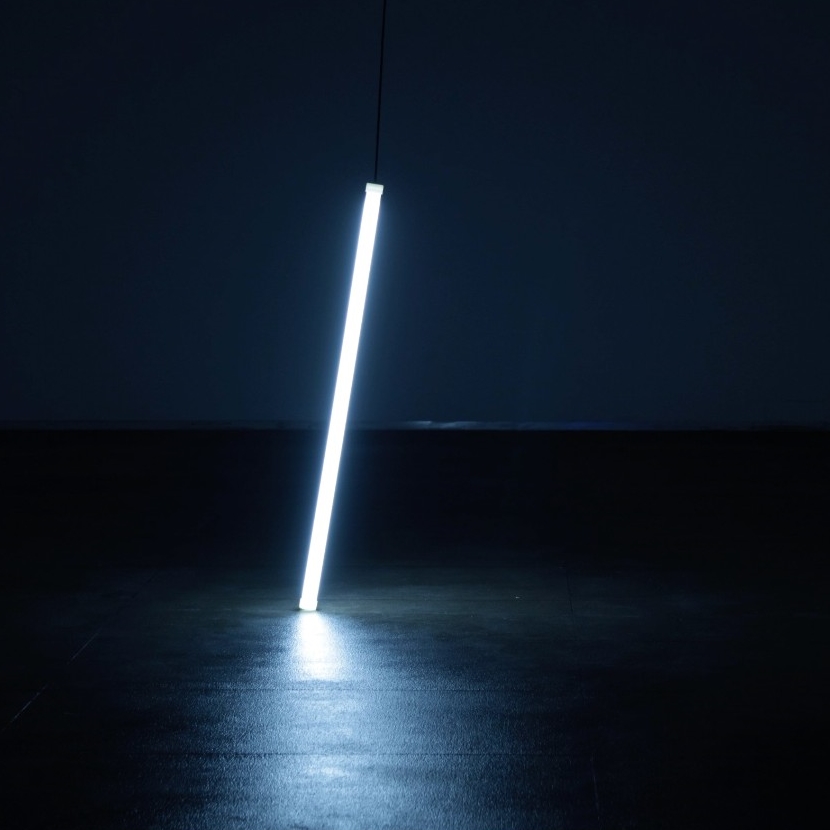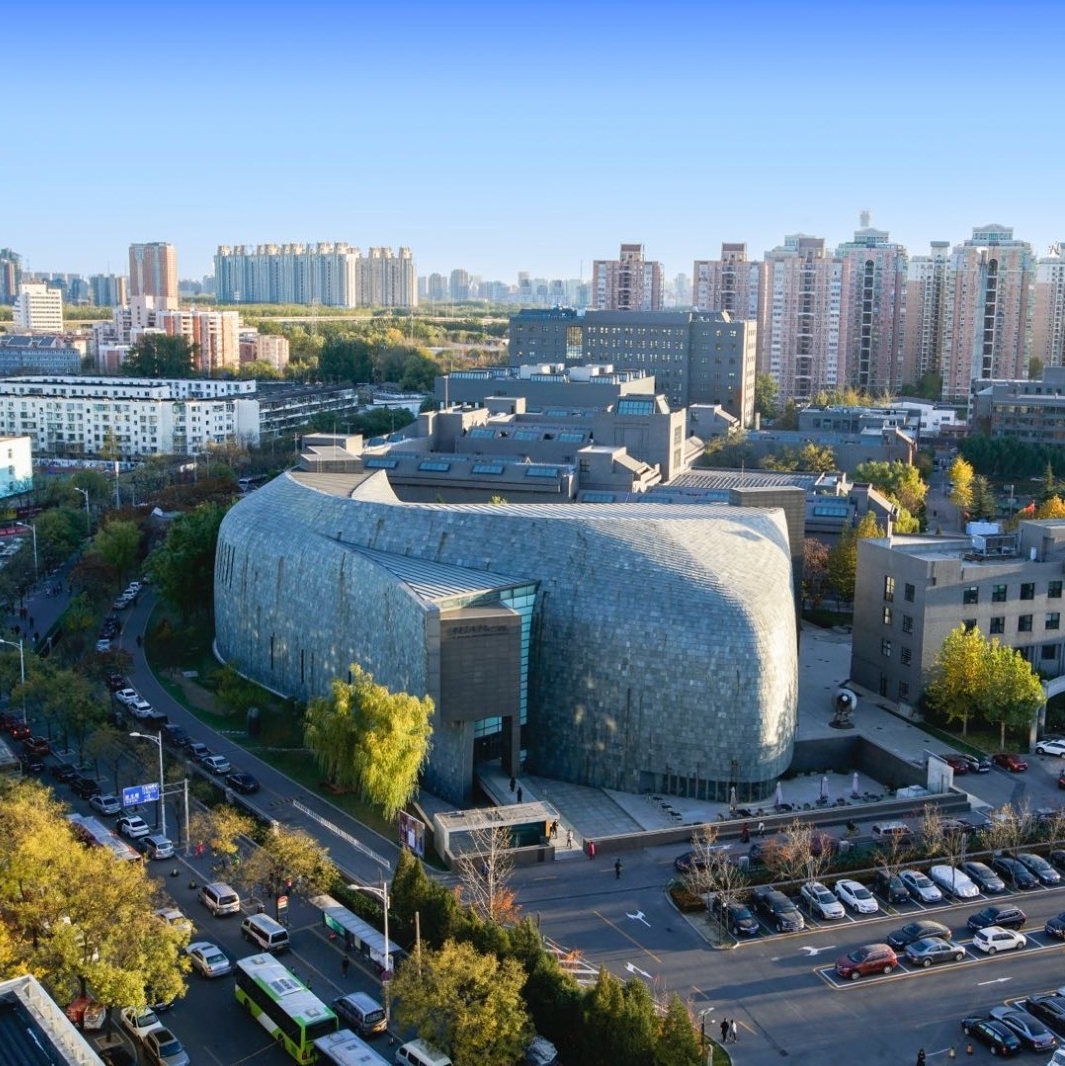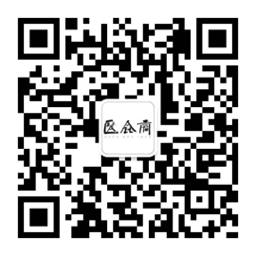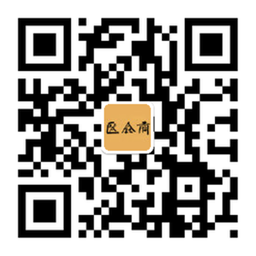As long as it touches things we originally want to express, everything can be transboundary.
Zhang Yanzi
Zhang Yanzi is a Chinese artist that cannot be ignored, as her works have been exhibited in China and around the world, including art galleries, art institutions and exhibitions by private collectors, such as the Museum of Contemporary Art in Naples, Diocesan Museum at Venice Biennale, Italy, China Art Museum, and Shanghai Art Museum. She is also considered to be a thinker and practitioner who converts the language of ink from the traditional to the contemporary. As a contemporary artist, Zhang Yanzi, expressed her opinion on the transboundary art at the opening ceremony: "Art must be interdisciplinary, from the very beginning till now this is the case, if there is no cross-border creations no art will be created, and today my work is related with the medical field , in the future my work will be produced in relation to other areas, as long as it touches things we originally want to express, everything can be transboundary. Therefore I said, art is not transboundary, it is unbounded. "
Art critic Pi Daojian approved this statement given by Zhang Yanzi and he said that this was an international perspective.
"Modern and Contemporary Art put more emphasis on the artist's true feelings, as to which language he uses to express, it is not so well-defined and is somewhat limited. Expressions of artistic language can be transboundary, but the ideological connotations have no boundaries. Also, contemporary art ceases to stay in the aesthetic stage any longer, but it presents a reflection of the artist, a retrospect on the living conditions of people, to examine and criticize society. Therefore the artist is not simply an artist any more, he can also be a philosopher, sociologist and politician. Different artists vary from personal experience they may have a different emphasis. Nowadays the world has become a mix and match while the boundaries with poetry, novels, and moving images have been gradually blurred, so modern and contemporary art can be said to be unbounded. "
Pi Daojian said, "Essence" is a spectacular exhibition, as it is the perfect combination of art and science, it reflects the indifferent feelings for humane care from medical and pharmaceutical science and arts. It shows respect for life, while carrying forward the humanitarian spirit, which is much needed in the current environment with the strained relationship between doctors and patient.
Art critic Pi Daojian claimed that Zhang Yanzi was an outstanding artist among the new generation of Chinese ink painting artists, which has manifested in her deep infiltration of Chinese traditions, the calligraphy, composition and mood in her works, reflect her comprehension and experience of Chinese Traditional Culture; her keen perception of current life and survival of the present situation was to grasp the changes of the times. Materials and elements used in her work are related to medicine and health care, we can discern the reflections of Zhang Yanzi on suffering. Zhang Yanzi’s contemporary ink painting that can be regarded as growing from the Chinese culture in this soil, which is different from the artists who have learnt from the West through the 1985 New Wave, this indicates that Chinese contemporary art has entered a new age that artists are self-confident in their culture and they create with self-consciousness. Although Zhang Yanzi also included manifestations of Western contemporary art in her works, such as collages and abstract artistic expressions but she did not commit to stiff imitation, but she integrated Chinese traditions and Western elements, as an artist with strong feelings,as well as desires to express, Zhang Yanzi has her own artistic language, which is quite valuable.
Q: The exhibition is entitled “Essence”, what is its implication?
Zhang Yanzi: It was proposed by the joint curators from Ora-Ora and Hong Kong Museum of Medical Sciences and they discussed it with me to decide on the theme. The Chinese character of 本(Essence), which is the first word of "Compendium of Materia Medica" and during that time I was reading" Compendium of Materia Medica", and I tried to understand herbs, my work, "The Inescapable" is wrapped in gauze with Chinese herbs, so I think this title is appropriate.
Q: Which work do you think brings about the theme of this exhibition? What are your creative ideas and themes?
Zhang Yanzi: There are two thematic (key) works. One is the group of "Resuscitation" and "The Inescapable"; there is another group on the obstetric table; this is the collection which left me the deepest impression when I visited and took an residency of two weeks at the Hong Kong Museum of Medical Sciences, therefore I have created around it.
Q: This time your solo exhibition is held in Hong Kong, what message do you have to communicate with the local people of Hong Kong?
Zhang Yanzi: When I created these works, I did not expect them to be viewed by people from Hong Kong or the mainland China, but still these works are different from what I used to make. My previous work was based more on personal feelings, but the works included in Essence are based on the perception of my last exploration at Hong Kong Museum of Medical Sciences in 2015, during the creative process and which is also inseparable from my personal experience as a mother with a female identity. During my visit, I learned about some of the stories, the scientists who came to Hong Kong to participate in the treatment to rededicate the plague and then I founded the predecessor of the museum, they researched vaccines and other deeds, I was deeply moved. I believe that, although people are selfish, individuals are independent, but there are still some people can transcend the individual, they have a great love to love all people and try their best to help those in need, which makes me find their dedication very touching, this is something that impressed me, I wanted to use my work (rendering) to touch other people, without geographical differences.
Q: When did you start your series on medical treatments? What kind of opportunity has brought this inspiration to you?
Zhang Yanzi: It was in 2009 when I first started painting “capsules." Capsules were not what I deliberately intended to paint, which did not mean that I wanted to draw the medical stuff, but I wanted to paint something around me, something I was in contact with everyday, so I started to draw something I ate everyday, like fruits, vegetables, and even rice dumplings, every day I drew what I saw. I spent most of my time in the kitchen, I painted the kitchen things, and then one day I saw a plate of leftover capsules (drugs), I drew those capsules. After it was finished, I felt capsules were endowed with a very different feeling from other foods. I also painted lipsticks and other everyday objects but the meaning endowed by the drug itself, was quite different from other things. For example, I wanted to insist on starting from the perspective of women's cosmetics, I will definitely go further onto another deeper level, and I will try to explain something from another perspective. But from the medicine, from the perspective of capsules from this level to dig, unconsciously has become what it is now, I did not intend to decide to work on a series related with medicine. Actually, I think anything as long as you dig deep enough, and then you interact and combine it with your original opinions on something, you can dig out something particularly interesting. (Sentiment of the journalist: Trust your instincts, and let it be). Because my parents died early, I have been confronted with death earlier than the usual, when I have to face the passing away of my loved ones, so there is more time to think about life and death. When a drug appeared before me, my experience might be different from others, but I think my mind was already thinking about life and death, and then how anything can touch me.
Q: What kind of life experiences have contributed to your artistic style?
Zhang Yanzi: I think the artist's life is certainly closely related to his(her) art style, since your life experiences directly affect your outlook on the world as well as life, and the things around you, your processing method, your expression, this definitely affects your work.
Q: Do you think art and medicine can relieve pains in terms of treatment?
Zhang Yanzi: The common thing between art and medicine, I think it can make people forget the pain in their short lives, or it can relieve pain.
Text by Freelance writer Kwok Fong for Art Channel of www.ifeng.com.
Translated and edited by Sue/CAFA ART INFO.
Zhang Yanzi: What disease do I have?
Yesterday I had a dinner with one of my friends, he asked a friend who studied medicine, it has been said that he had depression and the symptoms were lethargy. The doctor said that everyone has depression, though the extent varies for each individual. On my way back, I also thought about it, what disease do I have?
Before 2009, I was more anxious, after I started to paint medicine, I felt much better.
I did not deliberately draw medicine, at that time I created a plan for myself, a plan to draw everything I ate every day, all kinds of fruits, dumplings, candies...then one day I took the pills and I drew them, that’s it. But after I finished I found the drugs were different from other foods, for modern day people, medicine is a particularly sensitive thing, everyone feels sick, everyone needs medicine.
Now for diseases, it is called the disease of “aging”, you watch yourself getting old day by day, until doddering starts and that is aging.
Yesterday, I watched a movie called “The Bucket List", both of the characters had cancer, doctors announced that one has a year to live, the other has six-months, when they were finally confronted with death, they found throughout their lives, there are too many things they want to try, but they were mercilessly missed ...so they put together a bucket list, including the most wanted things in their lives, and they accomplished them one by one.
Everyone knows he will die, but one day when you are informed about this date, are we really ready to accept it? Being Middle-aged, I often think of this, death.
In 2001 my father passed away and in 2003, my mother passed away, I was confronted with death much earlier than the general population. After that I went through a long and anxious process. I always imagined that it is not true.
I once had a dream, in the dream my mother and I were there with my sister at home waiting for my dad to come back for dinner, my mother suddenly said to me, actually it was a dream, your dad is gone, I woke up and I found this was also a dream ...
At that time, I was living near a kindergarten, I often saw that old ladies came to pick up their grandsons or granddaughters, they chatted with each other happily, every time I saw them I suddenly felt so sad…
My mother believed in Buddhism, and she was a particularly devout Buddhist, she passed away in the temple, and I lived with her in the temple for the last month of her life. In 2013 when I created “The Remedy" that work which was composed of tens of thousands of Buddhist statues, deep down in my heart I had an idea that it was dedicated to her.
On the day she passed away, I did not cry. I spent a month in the temple, as if I was there to complete a ritual, like a show, we were all actors, there to accompany her. She was bent on going to the Western Paradise, as her offspring, we must fulfill her wishes.
The temple had a particularly large number of rules, when to do what have been created, we were propelled forward to accomplish the rituals. Therefore, when all was done, we felt so exhausted that I did not realize that I could not see her any more.
After some years, I could not escape from this struggle, immersed in the delayed sadness.
I always thought that as long as our parents lived, we did not grow up at all, until that day, you do not really realize how close you are to death. Sometimes I think with the death of my parents, they took part of me with them, while another part of me remains to my offspring, perhaps, we do not have our own lives.
Now I've overcome with sadness of my own, and I talk to them in my way, sometimes by burning incense, or perhaps facing the air, facing the starry sky, or in front of burning incense smoke, to talk to them, I feel more comfortable after I finish talking with them and this is perhaps a way of self-healing.
Sometimes I even feel that, I did not paint these paintings by myself, how could I imagine them? How could I have been inspired? They were just expressed through my hands…
This time the exhibition is held at the Hong Kong Museum of Medical Sciences, some doctors saw the "angel wings" and their eyes welled up with tears , I think they have a feeling that we can not understand, the affection was beyond my work itself.
Actually, everyone has his own unspeakable sadness and weakness, I did not want to heal all of them, I do not know whether I have this ability or not, but if it can sooth and comfort those who come to look at it, it is also very nice.
Originally I painted those tablets, capsules, because I took medicine myself. Afterwards I wanted to draw some medical equipment, and then I started to find information, needles, syringes, stethoscope… a stethoscope is so beautiful, that until it was finished, it did not occur to me that my first toy was a stethoscope.
When I was young, my father had a desk in our house, an old-fashioned one that could be locked, when my parents were not at home, I secretly opened it, I read all the things in the drawers of the desk, photos of his college, notebooks…
Inside there was a special box containing a stethoscope, I put it on my ears and listened to my heartbeat, I also used it for karaoke, singing against its black handset, what I heard in my ears was definitely a multi-channel stereo manoeuvre, especially pleasant.
The stethoscope was one of my favorite toys from my memory, and I played with syringes, I took them and injected water into steamed buns, quite naughty. These things that it was forbidden to play with made my childhood full of fun.
I think whether the things I paint could be related to my childhood or not, it’s hard to tell.
Once the source is found, it seems that I do not feel that uneasy.
Now, I sometimes sit cross-legged in meditation, I do not have so many rules, I just sit there and let myself calm down, I cannot reach the realm where I think of nothing, I will simply sit there sorting out my thoughts, in dialogue with my friends and with myself.
Increasingly, I prefer to do things I don’t need to think about, this feeling is more obvious recently when I painted "Empty Chip", I drew them one by one, over and over again accumulating ink and color, it seems to be never-ending, at that time, it seemed that I experienced a vacuum state.
I think that I will keep drawing to heal my illness.
(This article is based on YT interview by interviewer Zhao Shuai, http://www.yuntoo.com/index.php?/share/index/31663/2_7_0?=&from=timeline&isappinstalled=1)
Translated and edited by Sue/CAFA ART INFO
Image Courtesy of Zhang Yanzi


